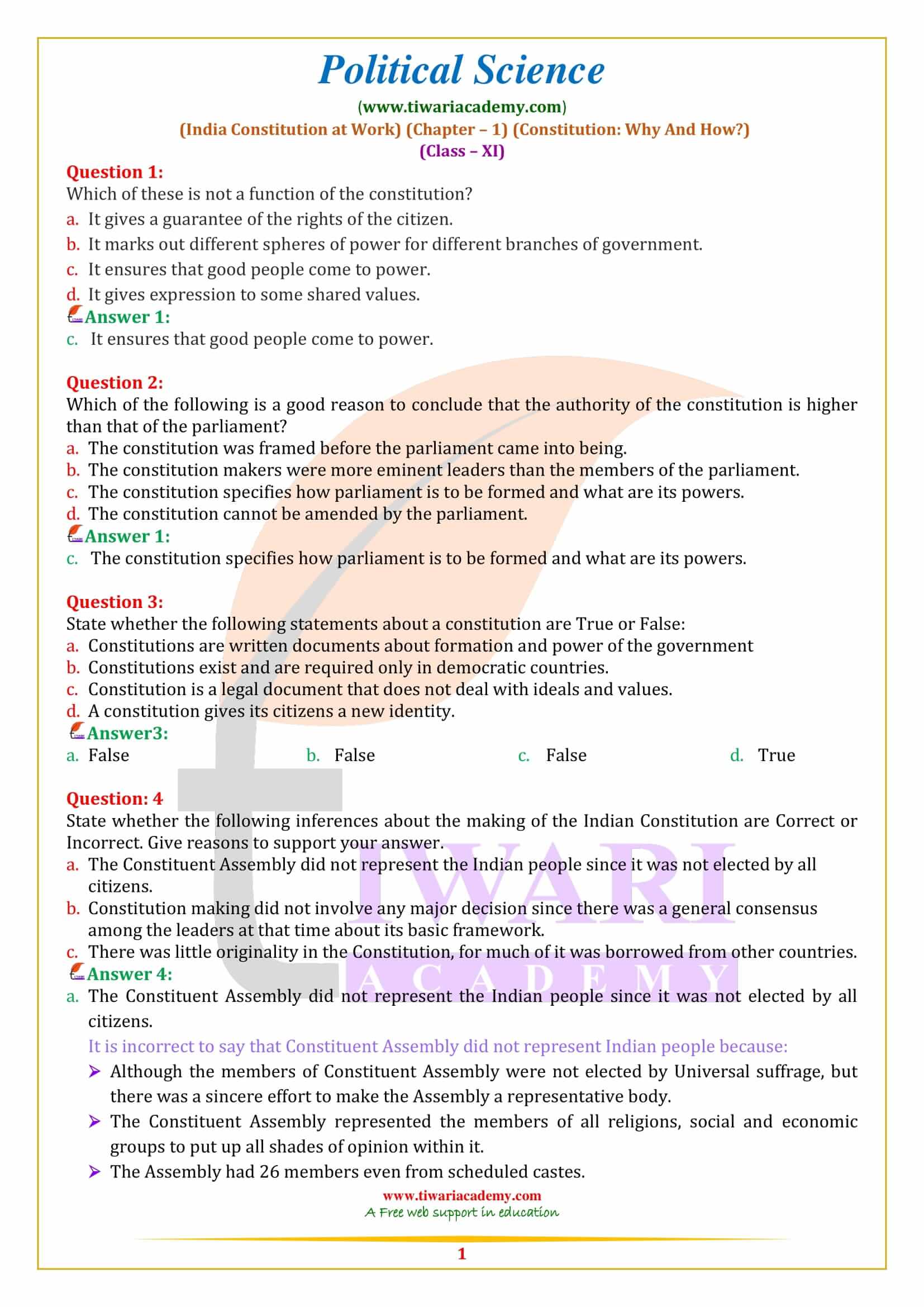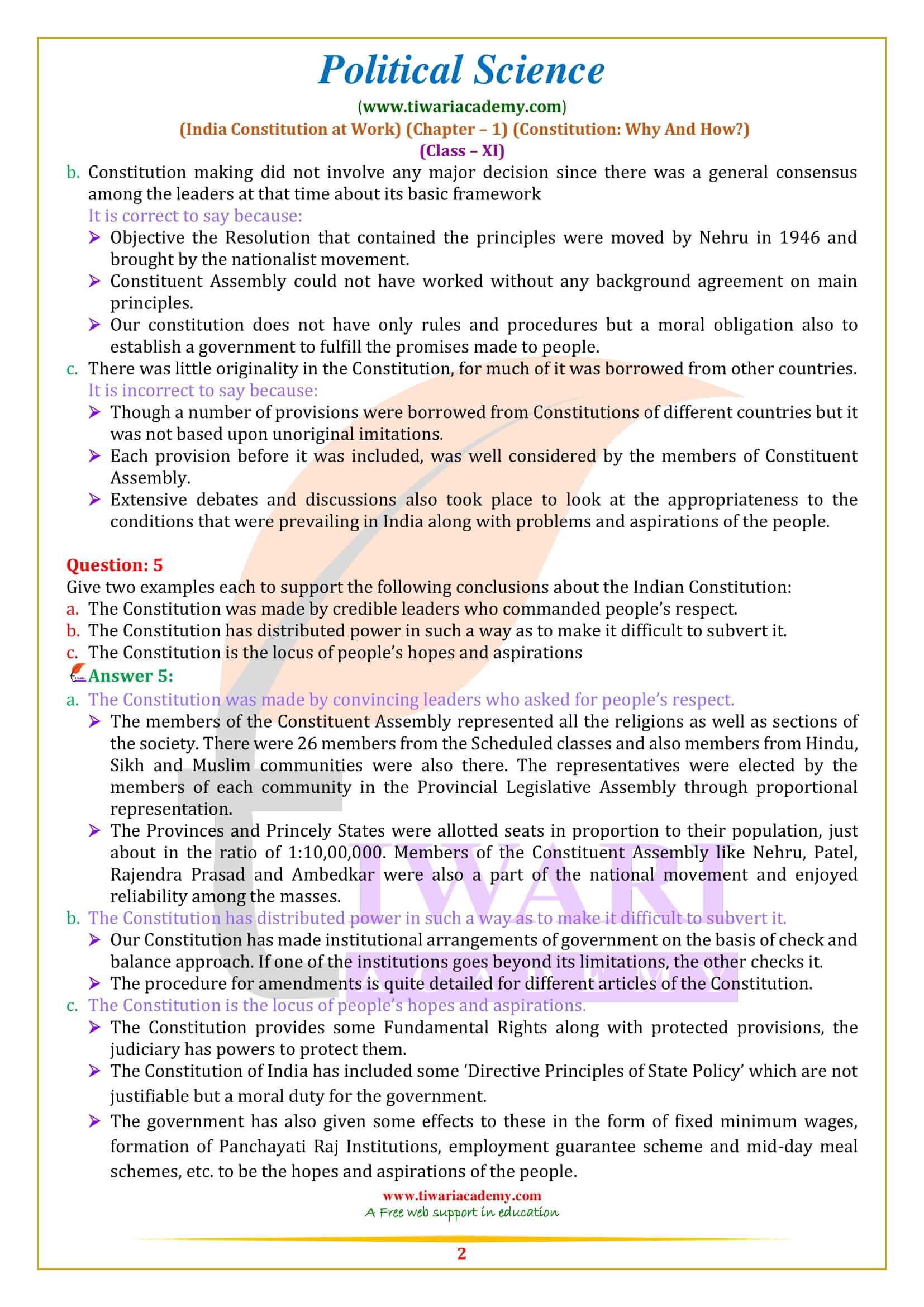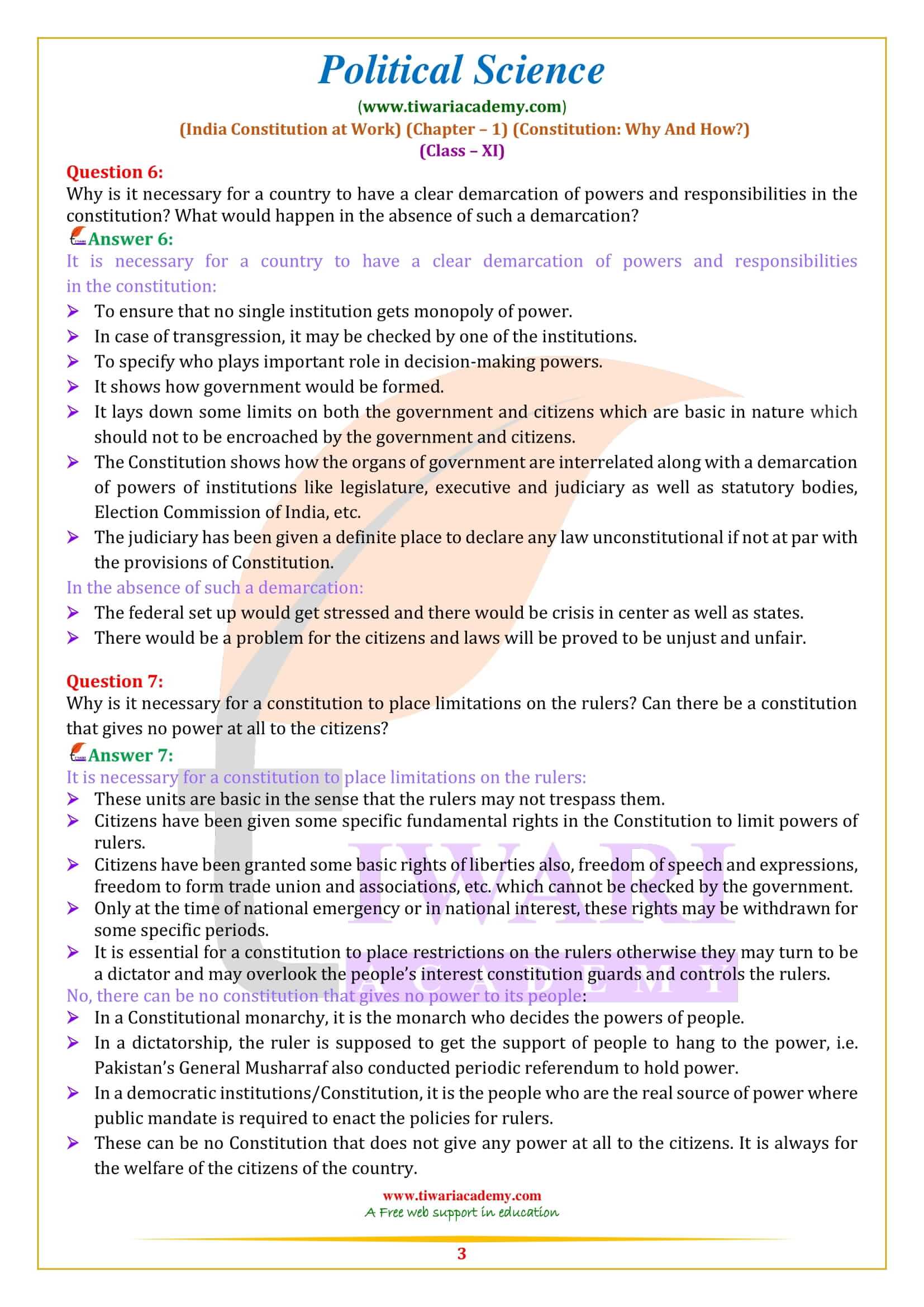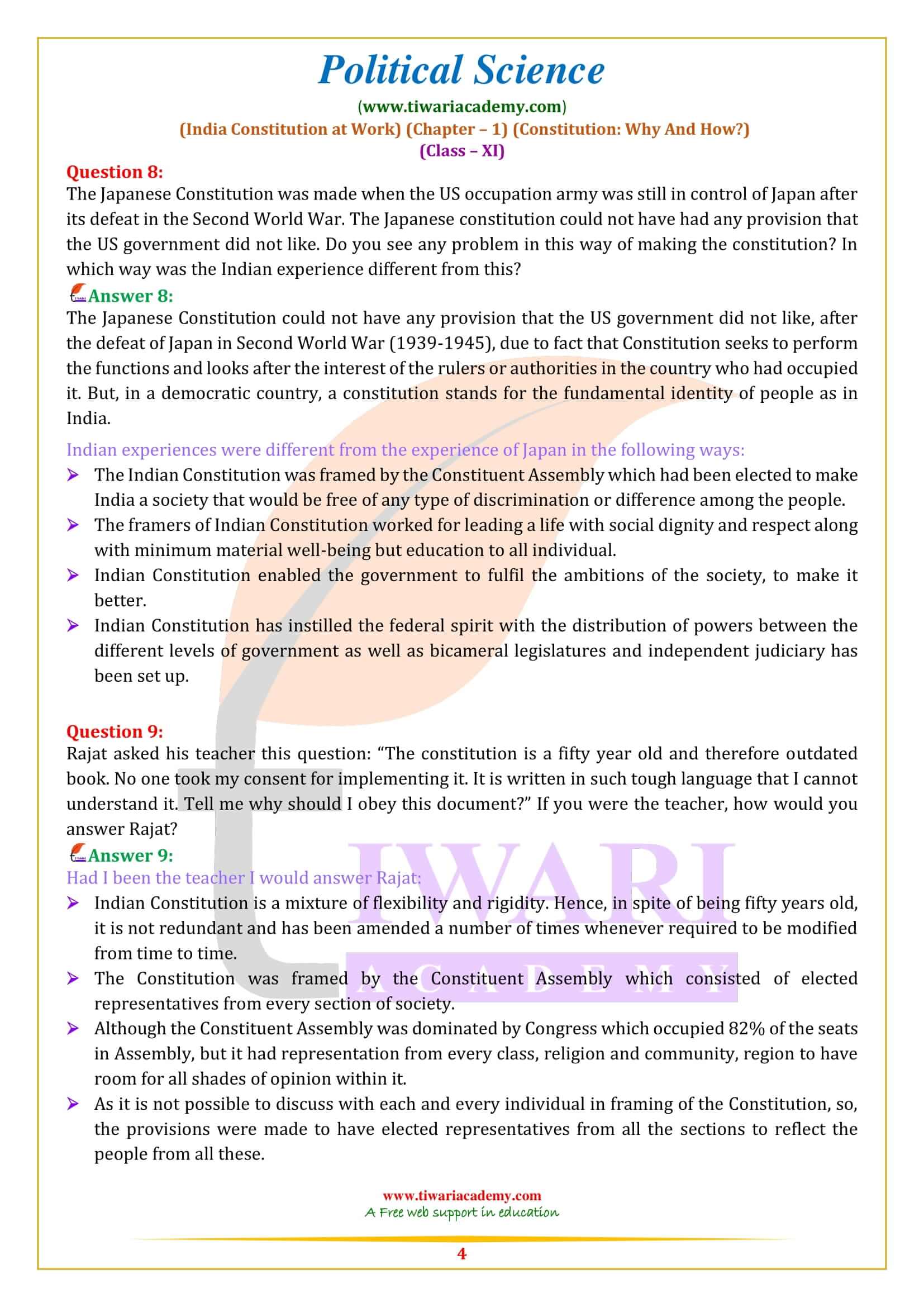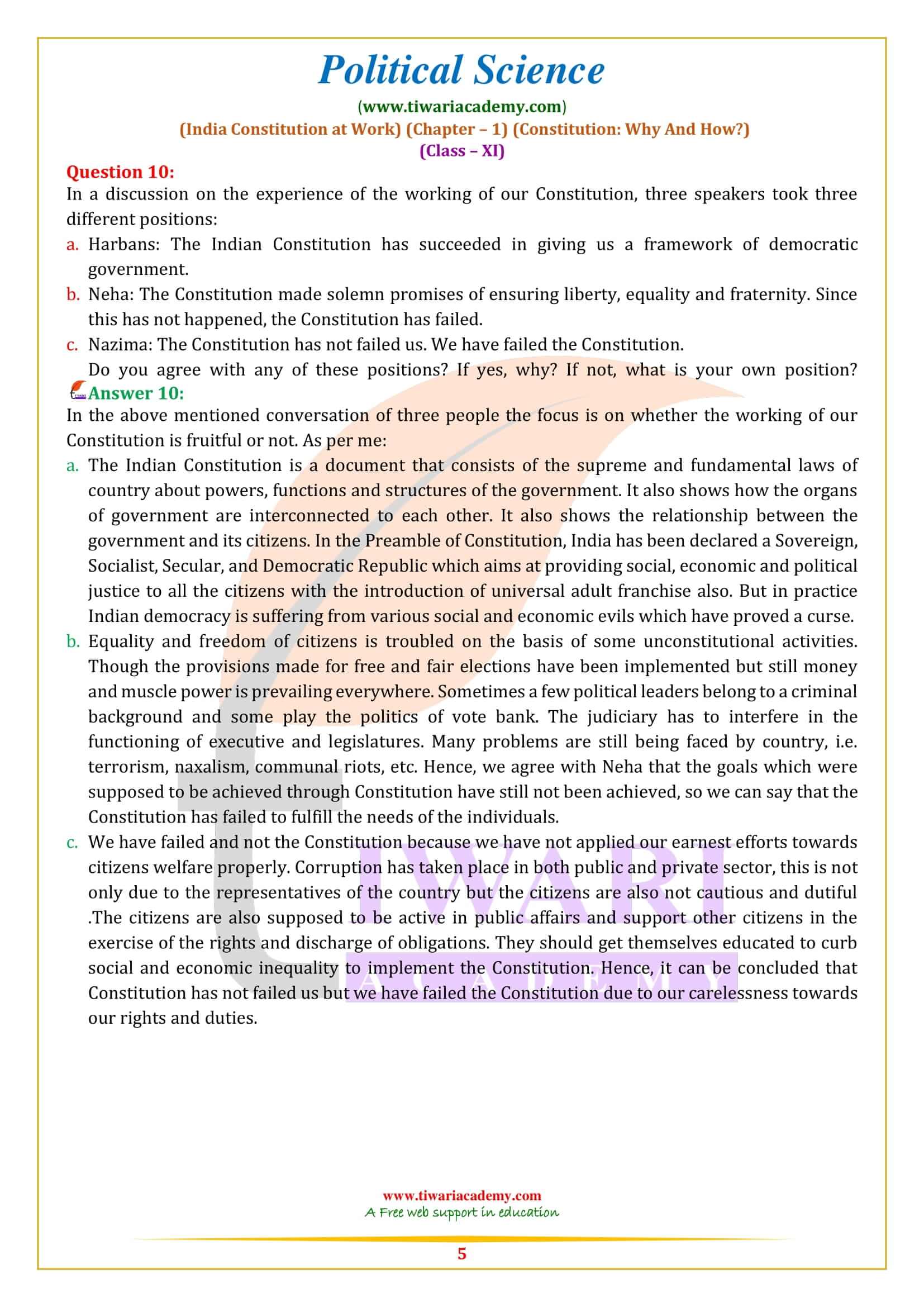NCERT Solutions for Class 11 Political Science Chapter 1 Constitution: Why and How? in Hindi and English Medium Updated for new academic session 2025-26. All the question answers of textbook Indian Constitution at Work 11th Political Science Chapter 1 are given here in simple format.
NCERT Solutions for Class 11 Political Science Chapter 1
Why is it necessary for a country to have a clear demarcation of powers and responsibilities in the constitution? What would happen in the absence of such a demarcation?
It is necessary for a country to have a clear demarcation of powers and responsibilities in the constitution:
- To ensure that no single institution gets monopoly of power.
- In case of transgression, it may be checked by one of the institutions.
- To specify who plays important role in decision-making powers.
- It shows how government would be formed.
- It lays down some limits on both the government and citizens which are basic in nature which should not to be encroached by the government and citizens.
- The Constitution shows how the organs of government are interrelated along with a demarcation of powers of institutions like legislature, executive and judiciary as well as statutory bodies, Election Commission of India, etc.
- The judiciary has been given a definite place to declare any law unconstitutional if not at par with the provisions of Constitution.
In the absence of such a demarcation:
- The federal set up would get stressed and there would be crisis in center as well as states.
- There would be a problem for the citizens and laws will be proved to be unjust and unfair.
Why is it necessary for a constitution to place limitations on the rulers? Can there be a constitution that gives no power at all to the citizens?
It is necessary for a constitution to place limitations on the rulers:
- These units are basic in the sense that the rulers may not trespass them.
- Citizens have been given some specific fundamental rights in the Constitution to limit powers of rulers.
- Citizens have been granted some basic rights of liberties also, freedom of speech and expressions, freedom to form trade union and associations, etc. which cannot be checked by the government.
- Only at the time of national emergency or in national interest, these rights may be withdrawn for some specific periods.
- It is essential for a constitution to place restrictions on the rulers otherwise they may turn to be a dictator and may overlook the people’s interest constitution guards and controls the rulers.
No, there can be no constitution that gives no power to its people:
- In a Constitutional monarchy, it is the monarch who decides the powers of people.
- In a dictatorship, the ruler is supposed to get the support of people to hang to the power, i.e. Pakistan’s General Musharraf also conducted periodic referendum to hold power.
- In a democratic institutions/Constitution, it is the people who are the real source of power where public mandate is required to enact the policies for rulers.
- These can be no Constitution that does not give any power at all to the citizens. It is always for the welfare of the citizens of the country.
Give two examples each to support that the Constitution was made by credible leaders who commanded people’s respect.
The Constitution was made by convincing leaders who asked for people’s respect.
- The members of the Constituent Assembly represented all the religions as well as sections of the society. There were 26 members from the Scheduled classes and also members from Hindu, Sikh and Muslim communities were also there. The representatives were elected by the members of each community in the Provincial Legislative Assembly through proportional representation.
- The Provinces and Princely States were allotted seats in proportion to their population, just about in the ratio of 1:10,00,000. Members of the Constituent Assembly like Nehru, Patel, Rajendra Prasad and Ambedkar were also a part of the national movement and enjoyed reliability among the masses.
Give two examples each to support that the Constitution has distributed power in such a way as to make it difficult to subvert it.
The Constitution has distributed power in such a way as to make it difficult to subvert it.
- Our Constitution has made institutional arrangements of government on the basis of check and balance approach. If one of the institutions goes beyond its limitations, the other checks it.
- The procedure for amendments is quite detailed for different articles of the Constitution.
Give two examples each to support that the Constitution is the locus of people’s hopes and aspirations.
The Constitution is the locus of people’s hopes and aspirations.
- The Constitution provides some Fundamental Rights along with protected provisions, the judiciary has powers to protect them.
- The Constitution of India has included some ‘Directive Principles of State Policy’ which are not justifiable but a moral duty for the government.
- The government has also given some effects to these in the form of fixed minimum wages, formation of Panchayati Raj Institutions, employment guarantee scheme and mid-day meal schemes, etc. to be the hopes and aspirations of the people.
